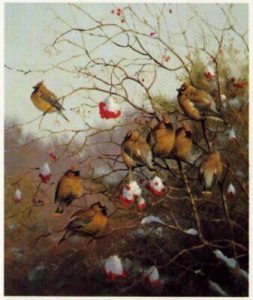 The Yogabliss, Two Rivers/RiverTree Yoga on-line Moving into Meditation classes met this morning. On our first meeting of the new year we return to our circle of care. Together we make our way through these troubled times with inspiration and practice. We ground ourselves with earth stillness. We feel and move with presence. We let go of our waiting and greet each moment with awareness. Again and again we return to our body wisdom to know what is true.
The Yogabliss, Two Rivers/RiverTree Yoga on-line Moving into Meditation classes met this morning. On our first meeting of the new year we return to our circle of care. Together we make our way through these troubled times with inspiration and practice. We ground ourselves with earth stillness. We feel and move with presence. We let go of our waiting and greet each moment with awareness. Again and again we return to our body wisdom to know what is true.
We drew on our imagination and heart wisdom to reflect on what matters most to us. We considered what we wish to bring forth in caring for what we hold most dear. We explored what we might be ready to let go of in service of what we love.
We drew inspiration from Barry Lopez who died on Christmas day. Barry was a remarkable human being. He wrote about his travels to wild places to learn what the land and its inhabitants have to teach us. Nearly all his writings affirm how precious life on earth is and our responsibility to care for it. Barry Lopez was and still is a gift to the world. His recent book Horizon gives so much insight into his very humble awareness of how inextricably involved we are with what happens to nature and at-risk cultures. He spoke in defense of the life whose voice speaks in languages other than words. He was so very generous in spirit. From an NPR interview:
It’s so difficult to be a human being. There are so many reasons to give up. To retreat into cynicism or despair. I hate to see that and I want to do something that makes people feel safe and loved and capable.
We heard Jane Hirshfield’s poem On Optimism affirm the resilience we share with nature.
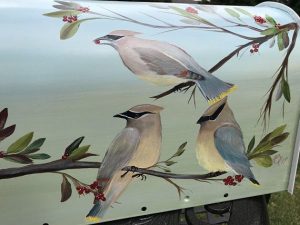 We considered the work of naturalist Robin Wall Kimmerer. In her article, The Serviceberry: An Economy of Abundance, she describes the profound power of the gift economy as evidenced in nature and traditional cultures. She describes the natural impulses of gratitude and reciprocity and the wisdom of living in a ways in which we can flourish together.
We considered the work of naturalist Robin Wall Kimmerer. In her article, The Serviceberry: An Economy of Abundance, she describes the profound power of the gift economy as evidenced in nature and traditional cultures. She describes the natural impulses of gratitude and reciprocity and the wisdom of living in a ways in which we can flourish together.
In her essay, Skywoman Falling, she describes the deep time of forests arising, dominating and then falling back to earth to renew and sustain new growth. We can learn a lot from forest ways of inter-dependence, mutual support and a sacrifice to sustain new life.
Relaxed Reflection
Seeker, story teller and writer Barry Lopez writes:
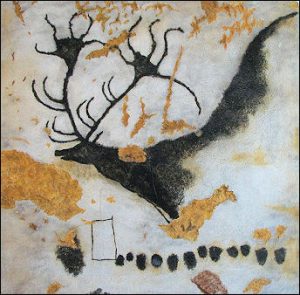 We must remind each other that people who have survived great loss, great harm can come back transformed by the experience, and see that their suffering has made them more resilient rather than more fragile, with the ability to thrive in the present rather than being overwhelmed by the past. Beyond the ending of the old way of life, there is hope for the emergence of the new, and we can imagine a future in which our wounds are still there, but in a form that both reconnects us and makes us wiser and humbler.
We must remind each other that people who have survived great loss, great harm can come back transformed by the experience, and see that their suffering has made them more resilient rather than more fragile, with the ability to thrive in the present rather than being overwhelmed by the past. Beyond the ending of the old way of life, there is hope for the emergence of the new, and we can imagine a future in which our wounds are still there, but in a form that both reconnects us and makes us wiser and humbler.
Does our suffering make us more resilient? Can we continue moving forward even as we carry the past with us? “. . . our wounds are still there, but in a form that . . . reconnects us . . . “ We are coming through this together.
Poet Jane Hirshfield writes so simply on Optimism
More and more I have come to admire resilience.
Not the simple resistance of a pillow, whose foam
returns over and over to the same shape, but the sinuous
tenacity of a tree: finding the light newly blocked on one side,
it turns in another. A blind intelligence, true.
But out of such persistence arose turtles, rivers,
mitochondria, figs — all this resinous, unretractable earth.
 Almost imperceptibly we move toward the light. What better time to reflect on what we want to do with the remaining life we have? What is it that matters most? What do we want to bring forward? What are we ready to let go? In this way we become the tenacity of a tree: finding the light newly blocked on one side, [we] turn toward another . . . With each breath our persistence gives rise to new life . . .
Almost imperceptibly we move toward the light. What better time to reflect on what we want to do with the remaining life we have? What is it that matters most? What do we want to bring forward? What are we ready to let go? In this way we become the tenacity of a tree: finding the light newly blocked on one side, [we] turn toward another . . . With each breath our persistence gives rise to new life . . .
Barry Lopez asks:
How is one to live a moral and compassionate existence when one finds darkness not only in one’s culture but in oneself? There are simply no answers to some of the great pressing questions. You continue to live them out, making your life a worthy expression of leaning into the light.
This is a good time to reflect on what we’ve been given and what we have to give. We have been given life . . . the air, the sun, the rain, the nurturing soil, the songs and the stories. These gifts are sacred – worthy of our devotion and respect. With these gifts we flourish and our flourishing is mutual. In her article, The Serviceberry: An Economy of Abundance, Robin Wall Kimmerer writes:
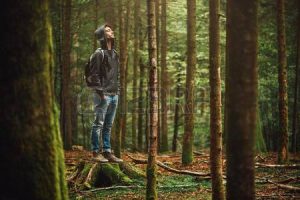 . . . In the presence of such gifts, gratitude is the intuitive first response. The gratitude flows toward our plant elders and radiates to the rain, to the sunshine, to the improbability of bushes spangled with morsels of sweetness in a world that can be bitter. . . .
. . . In the presence of such gifts, gratitude is the intuitive first response. The gratitude flows toward our plant elders and radiates to the rain, to the sunshine, to the improbability of bushes spangled with morsels of sweetness in a world that can be bitter. . . .
. . . Gratitude is so much more than a polite thank you. It is the thread that connects us in a deep relationship, simultaneously physical and spiritual, as our bodies are fed and spirits nourished by the sense of belonging, which is the most vital of foods. Gratitude creates a sense of abundance, the knowing that you have what you need. In that climate of sufficiency, our hunger for more abates and we take only what we need, in respect for the generosity of the giver.
Right now our bodies are fed and our spirits are nourished by belonging. Each of us belongs to this circle of caring. Coming together in this way we affirm and express what we hold dear: awareness, compassion and presence. We breathe, we move, we rest. And in the space we create together we are grateful. If in gratitude we breathe in . . . it is in our giving we breathe out. . . . In giving and receiving we are whole. The many ways we give and receive change the world.
In her essay, Skywoman Falling, Robin describes the very long view of the seeds we plant and how they blossom, grow and return to the earth again to nurture new life.
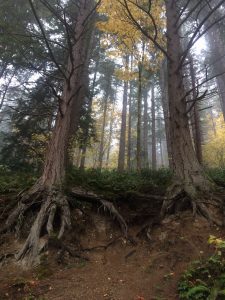 . . . I take my guidance from the forests, who teach us something about change. . . . A long-lived over-story can dominate the forest for generations, setting the ecological conditions for its own thriving while suppressing others by exploiting all the resources with a self-serving dominance. . . . Eventually, the old forest is disrupted and replaced by the understory, by the buried seed bank that has been readying itself for this moment of transformation and renewal. A whole new ecosystem rises to replace that which no longer works in a changed world.
. . . I take my guidance from the forests, who teach us something about change. . . . A long-lived over-story can dominate the forest for generations, setting the ecological conditions for its own thriving while suppressing others by exploiting all the resources with a self-serving dominance. . . . Eventually, the old forest is disrupted and replaced by the understory, by the buried seed bank that has been readying itself for this moment of transformation and renewal. A whole new ecosystem rises to replace that which no longer works in a changed world.
Robin describes the world of plants who survive and thrive by depending on others . . . the birds and animals who carry seeds toward fertility. She writes that we too “must pass lovingly from hand to hand” the seeds we wish to sow in growing our future. We can bring forth healing and solace to the earth and the children of the earth.
. . . It’s as if we can see the world we want to live in just over time’s horizon; the question is how do we get there? . . . What does it take to abandon what does not work and take the risks of uncertainty? We’ll need courage; we’ll need each other’s hands to hold and faith in the geese to catch us. It would help to sing. The landing might not be soft, but land holds many medicines. Propelled by love, ready to work, we can jump toward the world we want to co-create, with pockets full of seeds. . . .
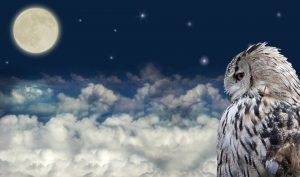 We gather here together at the threshold of imagination. We contemplate the questions that matter most because they encompass all our relations. We experience gratitude for all that we’ve been given and all that we are able to give. Robin . . . “imagines if we acknowledged that everything we consume is the gift of Mother Earth, we would take better care of what we are given.” We are in relationship with the giver; we take care of what we’ve been given.
We gather here together at the threshold of imagination. We contemplate the questions that matter most because they encompass all our relations. We experience gratitude for all that we’ve been given and all that we are able to give. Robin . . . “imagines if we acknowledged that everything we consume is the gift of Mother Earth, we would take better care of what we are given.” We are in relationship with the giver; we take care of what we’ve been given.
We are at the threshold of imagination. What thoughts would grow while thinking as a tree? What dreams would flow while dreaming as a river? How to enter the shared mind of a flock of birds . . . a pack of wolves . . . a school of fish? How would our tribe of relations expand? Would we savor the water we drink? Would we enter a forest as the home of more than human beings?
